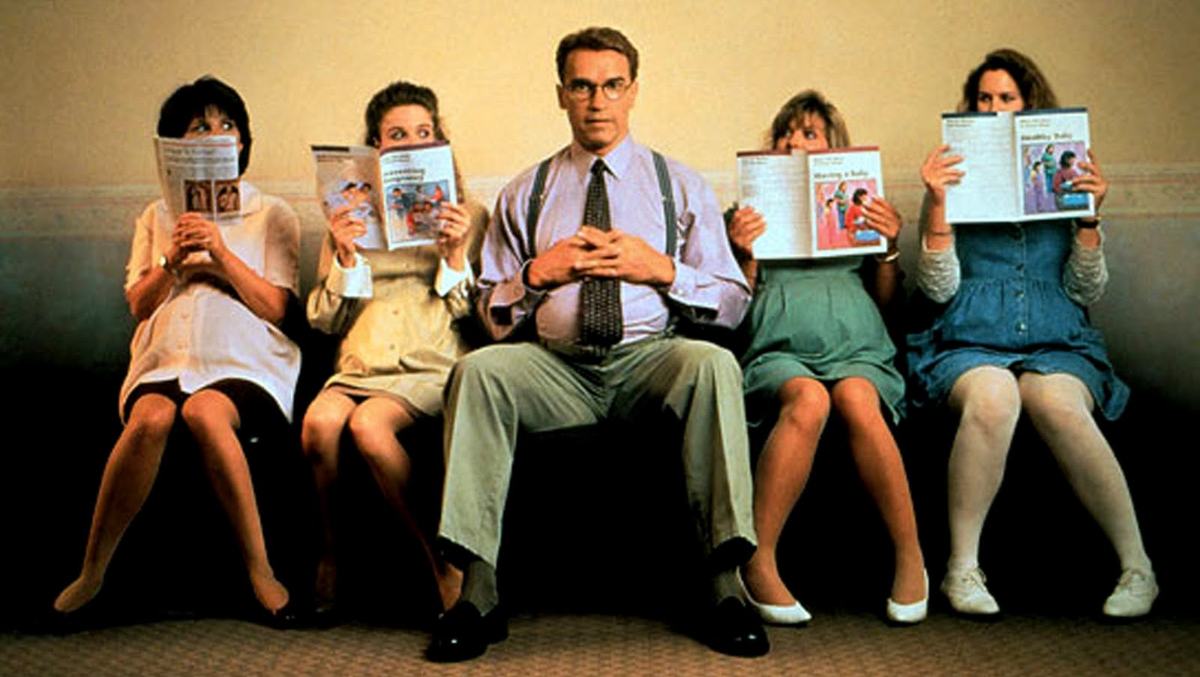
Another frontier in the Reproductive Revolution: social surrogacy
Hollywood actresses don’t want to hurt their careers
One of Arnold Schwarzenegger's worst films, Junior
A Los Angeles fertility doctor is facilitating social surrogacy for Hollywood starlets who want children but whose careers will suffer if they become pregnant. In a revealing interview with The Guardian, Dr Vicken Sahakian says that he sees nothing unethical about paying a woman to carry another woman’s baby.
“I don’t have issues with it. If you’re a 28-year-old model or an actor and you get pregnant, you’re going to lose your job – you will. If you want to use a surrogate, I’ll help you.”
“In this field, in Los Angeles, you can’t judge clients. This is the wild west. Twenty years ago helping a gay couple was taboo – it still is in Arkansas. We are so in the infancy of all of this.”
Sahakian says that he organises about 20 social surrogacies a year – up from a handful five years ago, even though it could cost US$150,000:
“If social surrogacy was more affordable, more women would be doing it, absolutely. There’s an advantage to being pregnant, the bonding, I understand that, and from experience I can say that most women love to be pregnant. But a lot of women don’t want to be pregnant and lose a year of their careers.”
A typical client is not a big name in Tinsel Town, but an aspiring actress. Sahakian says:
“They tell me point blank, ‘If I get pregnant, I will lose my part. I work, I don’t have time because of work. I model, I act, I look good like this and I don’t want to disfigure my body.’”
There is still a stigma attached to using the services of a surrogate mother, Sahakian acknowledges. Some of his clients work around this by wearing prosthetic swelling bellies. The market leader is a British company called Moonbump. Its products are made with five different skin tones and for four stages of pregnancy. Apart from using them in films or theatre, “in many cases, [they are] for strengthening emotional bonds as you move forward with a planned surrogacy or adoption” – according to the Moonbump website.
The Guardian’s journalist asked Sahakian to look into the future:
Back at the Pacific Fertility Center, underneath Sahakian’s framed medical certificates, I put this to him: that in 20 years people will think of social surrogacy as no more unnatural than surrogacy for gay couples.
“Twenty? No, a couple of years from now. We’re already almost there. Surrogacy isn’t taboo any more. In the UK, you are so far behind us. Thank God – so many of my clients come from the UK, it’s good for business! But that’s going to change.”
Michael Cook is editor of BioEdge
Creative commons
https://www.bioedge.org/images/2008images/FB_ARNOLD_2.jpg
reproductive revolution
surrogacy
